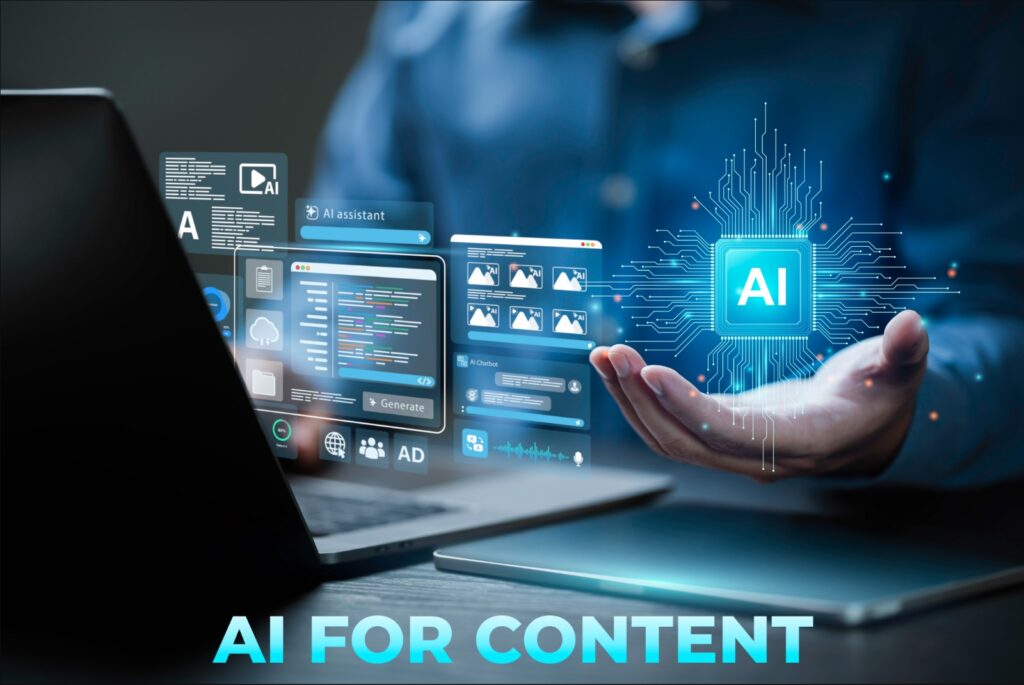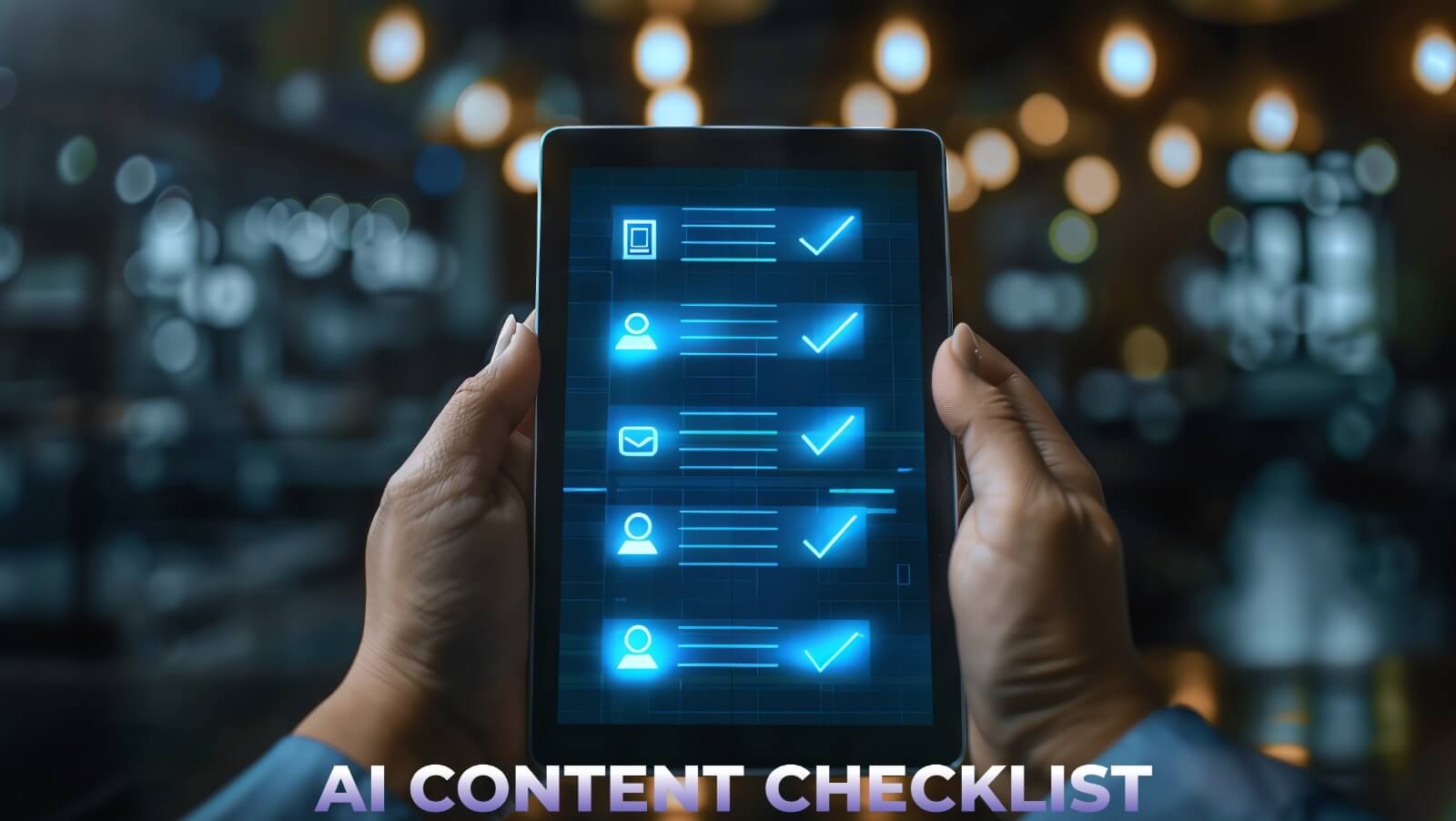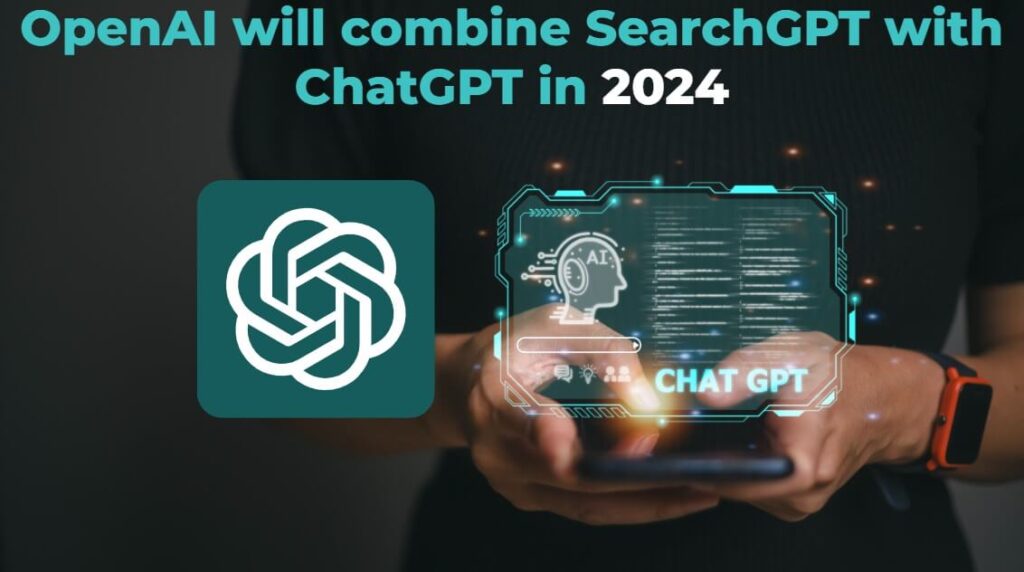Generative AI is rapidly changing the content creation landscape, offering the ability to create large volumes of content quickly. This shift has become crucial for brands that aim to boost their online visibility, engagement, and performance.
In fact, a 2023 MarketingProfs survey found that 75% of marketers are currently employing AI solutions to expedite the generation of content. Additionally, a HubSpot report found that 30% of companies see a significant increase in content production with the adoption of AI, with 62% of businesses reporting that they plan to raise their spending on AI in the coming years.
However, while AI cuts down the time it takes to generate content, the main challenge remains: How do you ensure the content it produces is relevant, resonates with your brand’s voice, and drives measurable SEO gains?
This is where combining AI’s efficiency with human expertise becomes essential. While AI excels at rapid content generation, human input is necessary to guide and refine these outputs, ensuring that they are effective and meet your strategic goals.
In this article, we’ll explore practical strategies that balance AI’s speed with human creativity, helping you create SEO-optimized content that connects with your audience. Additionally, you can use the checklist below to streamline your AI content creation process.
A Step-by-Step Checklist for Using AI in SEO Content Creation
Combining AI and Human Expertise in SEO
AI’s main strength lies in processing large amounts of data quickly. For example, 80% of digital marketers using AI in 2024 rely on it for keyword research and topic discovery, according to a Statista report. AI can analyze thousands of keywords in seconds, identify trends, and provide insights into audience interests.
Here’s how AI can help:
- Analyze large datasets to uncover keyword trends.
- Identify popular topics and new trends using natural language processing (NLP).
- Sort subjects according to search volume and relevancy.
However, while AI can generate data, human expertise is critical for making sense of it. For instance, AI might flag a keyword with a high search volume, but only a human expert can decide if that keyword aligns with a brand’s message and audience intent.
In a survey by BrightEdge, 67% of marketers said human intervention is essential to interpret and fine-tune AI-generated content to match brand standards. Human insight adds the critical thinking and context needed to make informed, data-driven decisions that align with business goals.
For deeper SEO content strategies, AI can also perform topic clustering, grouping similar ideas together. By using advanced models like sentence transformers, AI helps SEO specialists create comprehensive content that addresses key topics from multiple angles, improving overall SEO performance.
Using AI for Content Ideas and Planning
AI’s ability to generate content ideas quickly makes it a valuable tool for strategic planning. According to Gartner, companies using AI for content planning can increase idea generation by 30-40%. AI can analyze audience behavior, brand guidelines, and SEO trends to generate a wide range of content ideas. Still, it’s essential to remember that AI suggestions should serve as a starting point, not the final product.
You can do the following by including AI in your content strategy:
- Quickly come up with a lot of different content ideas.
- Content development should be guided and created by audience and SEO data.
- Brainstorm original ideas from different perspectives.
However, human strategists play a key role in fine-tuning these AI-generated ideas. 85% of content strategists say they rely on AI for idea generation but add their own insights to ensure the content fits the brand’s goals and audience expectations (CMI Report, 2024).
To make the best use of AI for content planning, adopt a collaborative approach: AI generates the ideas, while human strategists refine and direct them toward business objectives.
Ensuring Quality and Consistency in AI-Generated Content
AI excels at generating first drafts quickly. A report by McKinsey shows that AI-driven content tools can improve the speed of content production by up to 50%. However, AI-generated content can sometimes be repetitive, lacking originality, or may not match the brand’s tone and style.
To fix these weaknesses, it’s important to see AI-generated content as a draft that needs human refinement. Even highly trained AI models still require human oversight to ensure content is accurate and aligns with the intended audience.
Here’s how human input improves AI content:
- Make sure the keywords fit naturally into the sentence.
- Adjust tone and vocabulary to match the brand’s voice.
- Correct any factual errors or inaccuracies.
- Add more engaging elements to make the content audience-friendly.
According to a Forrester study, 78% of content writers working with AI spend more time editing and fine-tuning the content rather than drafting from scratch. This shift allows writers to focus on enhancing AI-generated content rather than starting from a blank page.
To maximize AI’s effectiveness in content creation, it’s essential to have a feedback loop. Content creators should regularly review AI outputs and provide feedback, helping to improve the AI’s training data and fine-tune its performance over time. This continuous refinement process reduces the weaknesses of AI and improves the overall quality of content.
The Use of AI in SEO and Content Creation in the Future
AI has already transformed content creation, especially for brands that use it within a well-structured content strategy. According to a study by Accenture, companies using AI for content creation see a 35% improvement in SEO performance on average.
By following the best practices outlined here, you can leverage AI to create SEO-optimized content that boosts your online presence and positions your brand as a thought leader. As the future of content creation becomes increasingly reliant on AI, brands that combine AI with human expertise will have a clear advantage in producing high-quality, impactful content.







